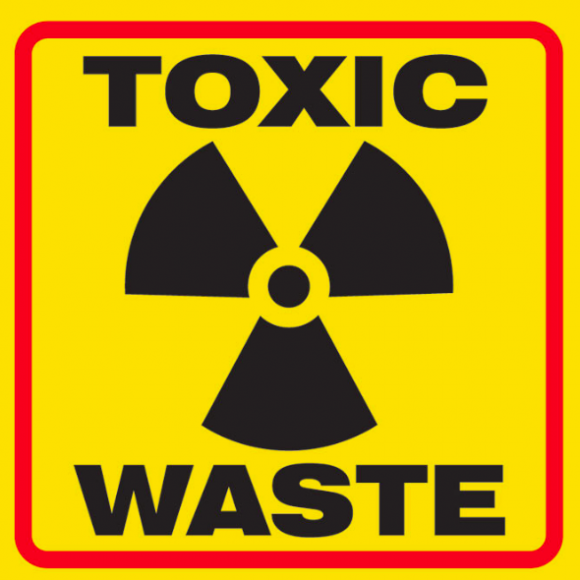A year ago, many countries took the first measures to tackle the emerging pandemic due to COVID-19. Lockdown, working from home, social distancing…
Experts aren’t certain if we’ll be back to normality by 2022 or we will just prolong current habits and lifestyle to establish a new norm. Will companies let employees work from home or from anywhere anytime? Will we be ever back in a crowded meeting room? Will we be allowed to bring donuts and coffees or birthday cakes for colleagues?
We don’t know how the post-pandemic world will look like and we don’t know how long it will take to get there. We will get used to new strange habits as we did with all the airport security measures and rules after 2001.
What we will not get used to though is incivility. What is incivility? It is disrespect or rudeness. It includes a lot of different behaviours, from mocking or belittling someone to teasing people in ways that sting to telling offensive jokes or texting in meetings.

Incivility
Incivility or a toxic work environment is a form of waste. Unhealthy workplace causes damages. It makes people less motivated. In the worst case, it makes people ill. According to studies on people exposed to incivility, 66% cut back work efforts, 80% lose time worrying about what happened, and 12% leave their job. It affects our emotions, our motivation, our performance and how we treat others. It even affects our attention and it can take some of our brain power. There is really rich research on this by Morgan McCall and Michael Lombardo when they were at the Center for Creative Leadership. They found that the number one reason tied to executive failure was an insensitive, abrasive or bullying style. A company like Cisco estimates conservatively a cost of $12 mln a year due to incivility exposure.
Averaged over 5 years, the annual cost of culture-related turnover in US is between $45 billion and $100 billion, according to a SHRM report.
Working from home.
Mi casa no es tu plaza de toros virtual!
These studies and estimates refer to the pre-pandemic world where in most cases, your office and your home were placed in different buildings.
The work-related tasks and your family and private activities used to be kilometres and hours apart.
A long commute, a different space, car, bus, train, tram, bike or sidewalk are not only functioning as time-space separators but they are helping decompress office stress and thoughts. Even simple gestures like closing one door and opening a new one helps the brain to change setup.
From a year, in many cases, this is not happening anymore. We commute in a few seconds from the bedroom to the living room or studio. Some join conference calls even from their bedroom or kitchen. Some don’t take breaks. Some jump from a meeting to the next skipping lunch.
But even if you take care of your wellbeing and implement some good practices, what happens when the toxic culture is not experienced in the office building but it is brought to you at your new work-from-home space?
Are now our houses always connected distributed offices or are they still our home sweet home?
Incivility is already unacceptable within company building.
It is unbearable at home.
Do customers, colleagues or managers have the right to bring toxic behaviour in your home as they would do in a meeting room?
Do they have the right to deliver aggressive or unprofessional behaviour at your door or precisely at your speaker?
Even if not directed to you, should you accept to witness small or big uncivil actions while you are at home?
Should insulting statements shouted at your peers or teams resonate in your home-sweet-home?
Should passive aggressive tone or loud ugly jokes stress out and kill your plants?
You don’t need to be Gandhi, Mandela, or the Dalai Lama to consider incivility unacceptable. You definitely have the right to say no and reject toxic behaviours, unhealthy interactions and detrimental attitudes, not only when you are the target but also if you are a witness.
Now that the concept is clear, let’s make a few considerations.
One
We are all human and we can all make mistakes. The kindest people, under stress or particular circumstances could say something wrong. They could react to bad behaviours. They could fall under the spell of imitation or adaptation. They could lose their patience. Sometimes even the calmest person cannot control an amygdala hijack.
Saying so… assume good faith and before judging, discern if the faulty event is an exception for that person or it is the rule. Are you surprised that one raises the voice for the first time or you would expect that one to interrupt as usual or behave unprofessionally?
Someone may say that these types of judgements can be subjective and biased. Yeah, deal with it. Any experience, positive or negative, has a margin subjectivity. ¯\_(ツ)_/¯
After all, also the way I arrange my home-work-station is the result of subjective and personal taste. Still, it works to keep business going and make objective quantifiable profits.
Two
The intrusive, invasive or abusive person may be you or anyone on a bad day. For once, it could be you losing control or as usual it could be you perpetrating your attempt to manipulate the audience. Incivility is a bug. It could be you the one who is bothering or infesting someone else’s house.
In any case, let’s keep in mind a few things you can remind to your colleagues:
When you are in a meeting, your voice, shared screen, your tone, volume, your attitude and yourself enter my house.
Be sure you enter on tiptoes. We share our spaces with our family, wife, kids, dogs. But even if we live alone, of course, everyone deserves respect.
Be mindful of the wording someone could hear, mind to avoid vile examples or not inclusive behaviours, bad temper, anger, bad jokes, inappropriate comments. Do not shout, we hear you. Do not interrupt and we will let you speak. Listen and you will be listened to. If you want to leave the meeting, just do it. Don’t announce that you are done with it. Don’t make a drama. It could negatively influence a colleague’s child that is listening in background to imitate bad examples, to make drama, to start a caprice…
Keep calm and raise your virtual hand; technology can improve everyone’s experience. All of us can be tired at the end of long hours and stressful days, anyone can happen to be glad, mad or sad. Treating others disrespectfully is never acceptable. If you do it, apologise. It is OK to forgive isolated exceptional actions if one takes responsibility and is willing to improve. Follow ground rules, accept the facilitator guidance, cooperate.
Feedback
Sometimes language may need to be direct, wording may sound harsh, but we need to listen, reflect and process any feedback as far as it is clear, contextualised, fair, non manipulative. Feedback is a gift. After listening to it, you are free to toss it.
We need to say what needs to be said without taboos, bigotry, fears, prejudice. Yet, being direct and polite aren’t mutually exclusive.
We are supposed to be grown up enough to keep conversation professional, to control anger, to avoid offences, caprice, stubbornness, and bad temper. Being adult professional is not about accepting aggressive language; it is about knowing how to behave properly in professional context.

Do not get defensive. Do not be aggressive.
You think you are at your home but you forget you are at the same time in people’s peaceful space.
Also remember, when others start fighting in a meeting, some may go on mute, make popcorn and watch the show. Being paid for it. That’s another reason why toxicity is a cost for organisations.
Even not directly involved people are affected.
Tip – here something to say or write if the situation crosses the civility line:
“Excuse me, although I am not the target, my exposure to not civil behaviour reached at a level not acceptable for my standards.”
Civility and respect can boost organizational performance.
When we have more civil environments – and our home should be a safe civil environment – we are more productive, creative, helpful, happy and healthy. We are more focused, more likely to stay with the organization and far more engaged. We are working from home in these critical times and we don’t need to wait to be back in the office one day to respect each other.
Let’s offer the best version of ourselves. Let’s talk about excellence, quality of relations, professionality, generative company culture. Let’s challenge and inspire each other!
Be kind, be polite, be civil.
* * *
I write about organizational patterns, transformational leadership, healthy businesses, high-performing teams, future of workplace, culture, mindset, biases and more. My focus is in leading, training, and coaching teams and organizations in improving their agile adoption. Articles are the result of my ideas, studies, reading, research, courses, and learning.
The postings on this site and any social profile are my own and do not represent or relate to the postings, strategies, opinions, events, situations of any current or former employer.
This article has been published for the first time on danieledavi.com by the author Daniele Davi’.
© Daniele Davi’, 2021. No part of this article or the materials available through this website may be copied, photocopied, reproduced, translated, distributed, transmitted, displayed, published, broadcast or reduced to any electronic medium, human or machine-readable form, in whole or in part, without prior written consent of the author, Daniele Davi’.